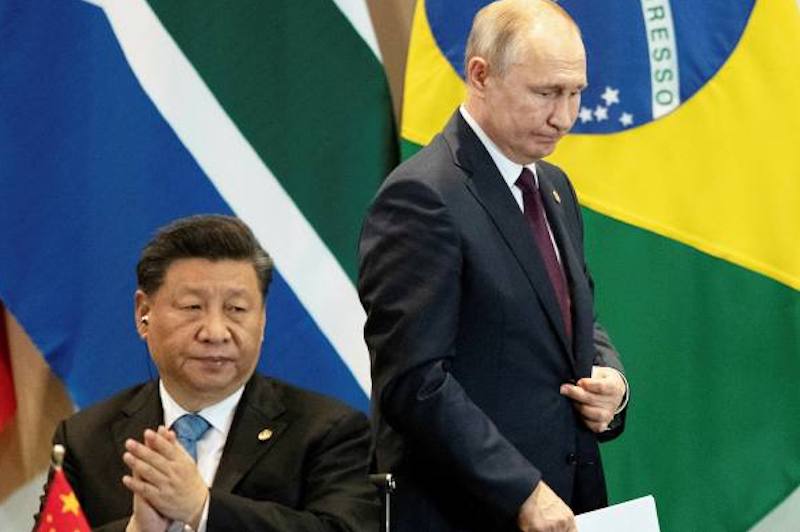The Russian economy is turning more to India and China as a result of sanctions imposed over its war on Ukraine, potentially bolstering the BRICS grouping of countries.
“We are actively engaged in reorienting our trade flows and foreign economic contacts towards reliable international partners, primarily the BRICS countries,” said Russian President Vladamir Putin in his opening video address to the participants of the virtual BRICS Summit.
The BRICS countries are Brazil, Russia, India, China and South Africa.
Putin said trade between Russia and the BRICS countries surged 38% in the first quarter from a year earlier to reach $45 billion.
The West has imposed sweeping sanctions on the Russian economy, including restrictions on imports of its oil, after the Kremlin sent its troops into Ukraine on February 24.
In order to weather the sanctions, Russia is trying to forge closer ties with Asia, seeking to supplant the markets it lost in the row with the European Union and the United States.
Sanctions against Russia have seen more of its crude oil being exported to China and India. Putin said Russia was discussing increasing the presence of Chinese cars on the Russian market as well as the opening of Indian supermarket chains.
READ MORE: State Bank of India Ramping Up Russia Links On `Dire’ Need
Global Security Framework
Chinese leader Xi Jinping, host of the BRICS summit, said the five countries could be the core of a new “global security framework”.
“Believing in the status of strength, expanding military alliances and seeking one’s own security at the expense of other countries’ security will inevitably fall into a security dilemma,” Xi said, in a reference to Nato’s expansion.
Putin also said the BRICS are developing a new basket-based reserve currency.
The real, rouble, rupee, yuan and rand would present an alternative to the International Monetary Fund’s Special Drawing Right (SDR).
But analysts were sceptical about such a basket currency’s reliability.
“When it comes to FX liquidity, suffice to say a basket of BRICS currencies operates in a different universe to those currencies in the SDR,” said Chris Turner, global head of markets at ING, a Dutch bank.
“The average deposit/yield on a BRICS basket would be far higher, but that is because of the much poorer credit quality where, incidentally, it looks like Russia will shortly go into sovereign default.”
- Reuters, with additional editing by George Russell
























